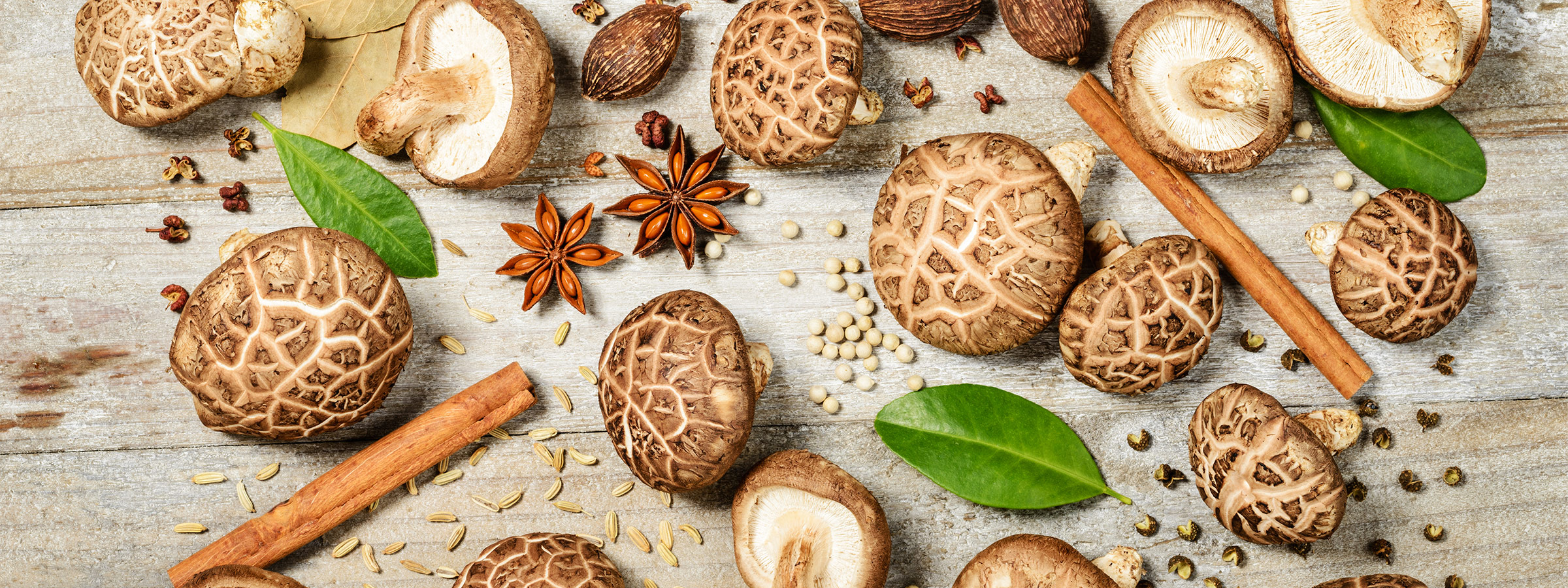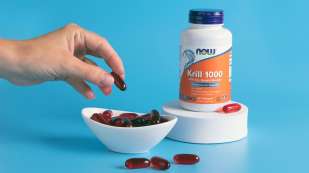Use coupon code CARDAMOM with your purchase of $40 or more for a free†
Cardamom OilMore About Herbs And Mushrooms

Nature’s apothecary
Thousands of years prior to the advent of modern medicine herbalists used herbs, mushrooms and other botanicals to promote optimal health and vigor, and many of their traditional uses have been validated through modern scientific studies.
Herbs and mushrooms are naturally teeming with phytonutrients that work together to bring about both specific beneficial effects and overall well-being. They’ve been used for thousands of years by herbalists in many different traditional health systems, including Indian Ayurveda and Traditional Chinese Herbalism. The use of herbs and plants for health is a tradition in many cultures.
Modern-day herbs
Today the use of herbs and herbal supplements has been steadily increasing thanks to a growing body of research on both the beneficial and detrimental effects of herbs and their constituent ingredients.
Whether you’re a curious consumer or a die-hard herbal supplement user, there’s a lot to like about herbs. But there’s also a lot of conflicting information that can be tough to properly interpret.
So what should you look for in a quality herbal supplement or brand?
- Research – Although herbs have been used for thousands of years, it’s only within the past 30 years or so that science has really begun to take a critical, clinical accounting of herbs and their constituent ingredients. While many herbs haven’t been well-studied, there are a growing number of herbs and botanicals with good clinical data to back up their purported benefits. If you’re in doubt, check reputable websites for clinical research on an herb you’re considering.
- Manufacturer reputation – With so many companies out there today it can be tough to accurately assess their reputation. With something as complex as herbal products and natural health it can be beneficial to go with a well-established manufacturer such as NOW. Reputable manufacturers have developed quality supply chains and have the resources and staff to stay abreast of new research and published studies.
- Too good to be true –Manufacturers must be able to back up any health claims they make with a solid body of supporting scientific evidence. For a good deal of herbal products this amount of evidence just doesn’t exist (yet). So when you’re shopping for herbal supplements, read the label. If the brand is making outrageous claims about the health benefits of their herbal supplements then you’re probably better off choosing a different brand.
- Standardization – Most herbs have an active component; that’s the constituent on which research has focused and is presumed to be responsible for the lion’s share of its benefits. A standardized herbal product is one that has been specially manufactured to provide a certain level or percentage of this active component. Sometimes a standardized herbal extract will also be a trademarked ingredient. Both standardization and a trademark offer additional assurances of a product or ingredient’s efficacy and safety.
Herbal Experts
With more than 45 years in the natural products industry NOW knows a thing or two about herbal products. We use well-established, reputable sources for our raw materials, and our state-of-the-art in-house laboratories afford us unparalleled control over quality and purity. We use trademarked ingredients in certain formulations and offer a number of standardized products as well.
*These statements have not been evaluated by the Food and Drug Administration. This product is not intended to diagnose, treat, cure or prevent any disease.











